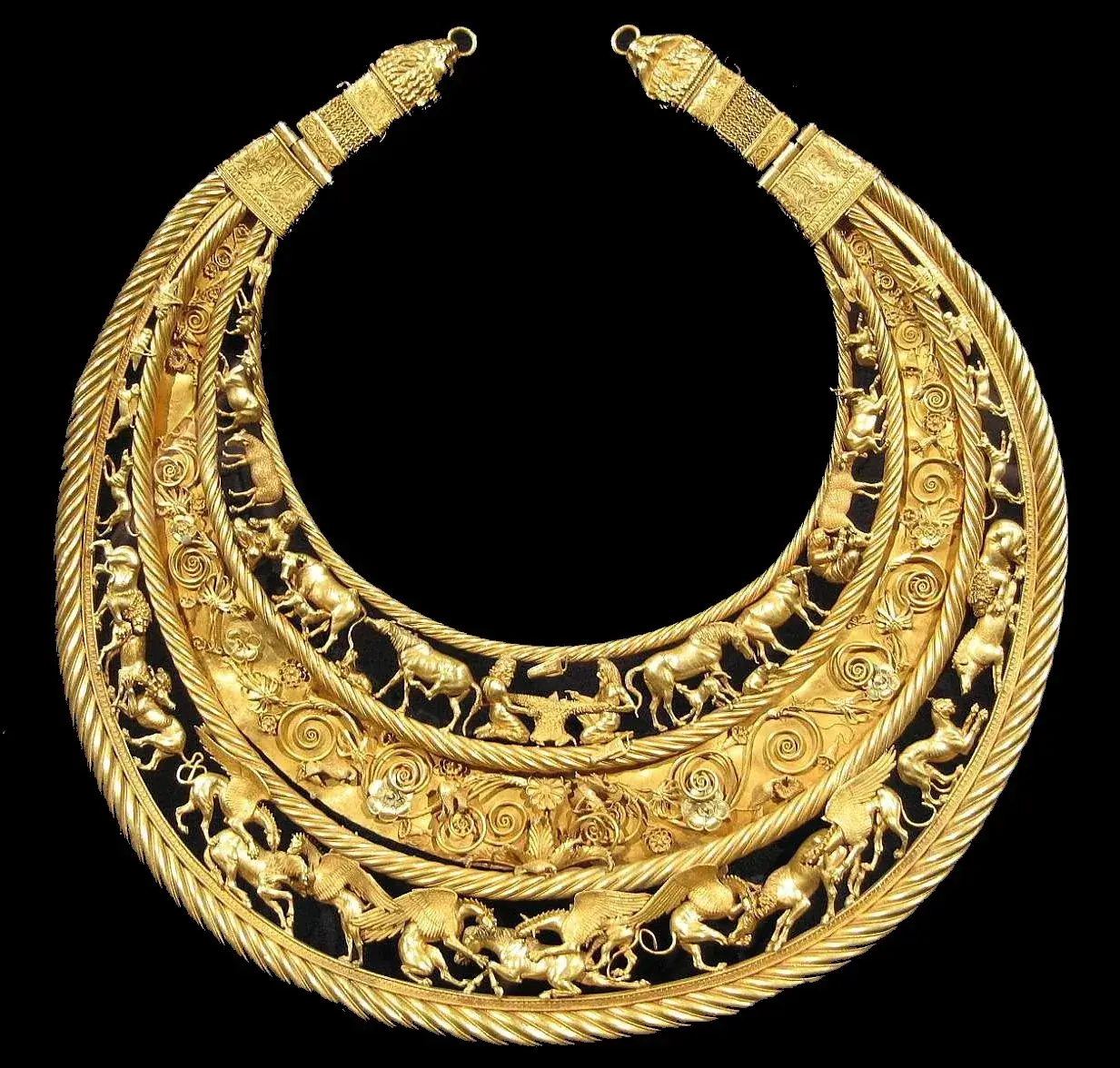For a man who has often been called “the father of lies,” Herodotus has proven surprisingly reliable, at least when it comes to his reporting on the ancient Scythians. Now, with the recent study, “Human and animal skin identified by palaeoproteomics in Scythian leather objects from Ukraine,” published in PLoS ONE, yet another unusual detail from The Histories has seemingly been reconfirmed.
According to Herodotus:
§ 4.64 That which relates to war is thus ordered with them: — When a Scythian has slain his first man, he drinks some of his blood: and of all those whom he slays in the battle he bears the heads to the king; for if he has brought a head he shares in the spoil which they have taken, but otherwise not. And he takes off the skin of the head by cutting it round about the ears and then taking hold of the scalp and shaking it off; afterwards he scrapes off the flesh with the rib of an ox, and works the skin about with his hands; and when he has thus tempered it, he keeps it as a napkin to wipe the hands upon, and hangs it from the bridle of the horse on which he himself rides, and takes pride in it; for whosoever has the greatest number of skins to wipe the hands upon, he is judged to be the bravest man. Many also make cloaks to wear of the skins stripped off, sewing them together like shepherds’ cloaks of skins; and many take the skin together with the finger-nails off the right hands of their enemies when they are dead, and make them into covers for their quivers: now human skin it seems is both thick and glossy in appearance, more brilliantly white than any other skin. Many also take the skins off the whole bodies of men and stretch them on pieces of wood and carry them about on their horses.
Read the rest of the article here:

